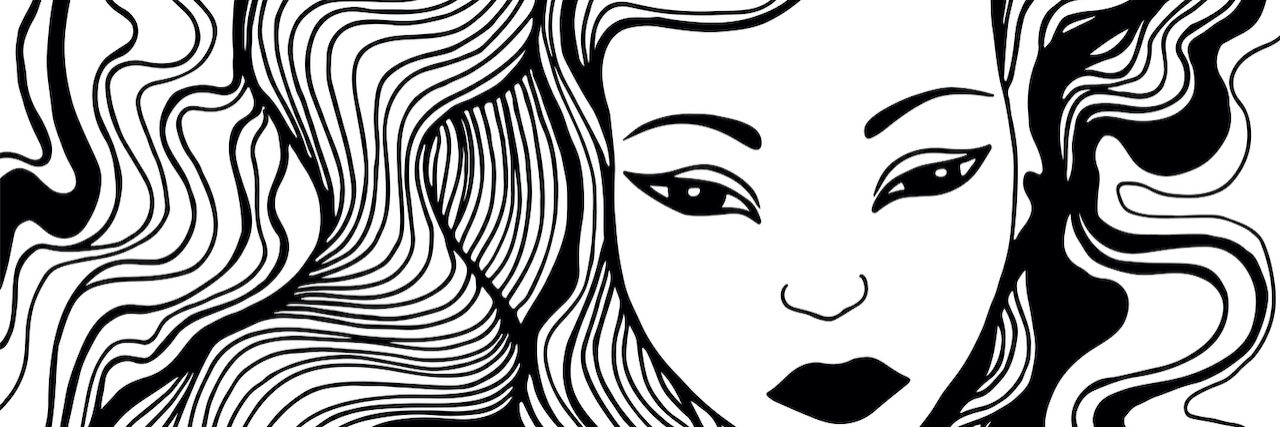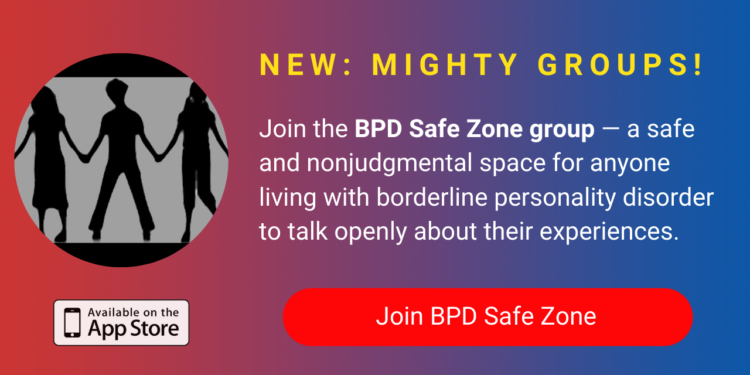What It's Like Being the Woman With Borderline Personality Disorder
The woman with BPD (borderline personality disorder) wakes up and is sad to the bone, just like the day before. She is alive, only a different kind of alive. One that’s emotionally unpredictable, marked by stormy relationships and fundamentally unlike anything she remembers before BPD. Not that she can recall much; her BPD-addled mind is chronically burdened with anxiety or despair (who will leave me now? why am I never enough?). And more often than not, the woman with BPD is too tired to focus on anything other than basic functions, like brushing her teeth, feeding her dog or feeling utterly invisible and unwanted. Only three friends and zero text notifications. More proof she does not matter.
At times, the woman with BPD gets angry and is surprised by her own rage, which frequently offends those around her: for example, she knows the eye technician purposefully overlooked her file and made her wait a half hour past her appointment time, because she is always slighted or unseen. So the woman with BPD angrily snaps at the technician, “how are you today?” The subsequent sour look on the technician’s face brings no satisfaction; in fact, it only underscores how loathsome the woman with BPD truly is, especially in her own mind. If only she could control her fury and appear sane! Five minutes later, the woman with BPD apologizes profusely, sobbing through her dilated pupils, but nothing can make up for the keen shame and anguish she feels because she cannot behave like a “normal” person. Moments like this occur often enough to make her wary of any kind of interpersonal exchange, so she avoids them whenever she can, compounding her lonely existence.
The woman with BPD wishes desperately to be attractive to men. Though she will never be confused for an Instagram model, she is basically attractive by most objective standards. The woman with BPD, however, is convinced she is ugly and undesirable. It’s her only explanation for why the few men who have expressed interest in her left, or simply disappeared without explanation. The typical scenario involves a man who genuinely seems interested for about two weeks, at least feigning curiosity about her life, until he stops all communication on his end. That’s when the woman with BPD gets desperate. Since she cannot keep a man on her own merits, she uses sex to entice and keep the desirable, unattainable man, anything to prevent abandonment. The kinkier the sex, the more powerful tool she can yield—at least for a while. At least until the man, whom she desperately wants love from, moves on to someone better, to the woman he can actually love and admire—to the woman who actually is enough. As always, the woman with BPD ends up feeling inadequate, unlovable, detestable and alone.
The woman with BPD has a best friend, at least by default. Her BFF is the only friend who actually initiates communication from time to time, which both annoys and pleases the woman with BPD. They always meet up at a local, near-vacant café (the BFF’s choice) where they complain about their respective jobs and eat scones. Then the conversation invariably leads to the BFF launching into an hour-long monologue about her son’s sports events, the unfair coaches, etc. The BFF seems oblivious to her friend’s sidelined position, allowing the woman with BPD to either nod in agreement or remain mostly silent. Not one inquiry about her own life, her problems, from her BFF. Upon leaving, the woman with BPD feels miserably empty and even more invisible, and she can only conclude that a cardboard cutout could have easily taken her place. No matter how deeply the woman with BPD wishes for something different in a friendship, the outcome is always the same.
The woman with BPD is exhausted, sometimes beyond measure. Therapists refuse to work with her; and an entire league of professionals deem her insufferable and incurable, without hope for recovery, According to the world, it feels like to her, all people with BPD are to be ignored and avoided at all costs. Ironically, this perspective just exacerbates the fears and negativity inherent in our diagnostically recognized mental illness.
But the woman with BPD is more than her BPD. She has a passion for and lifelong love of literature, writing, teaching and watching her students grow. She hurts deeply when violated or abandoned, but still, somehow, maintains a great capacity to love and nurture and give, even on her worst days.
The woman with BPD often dwells in profound, personal sadness, but she still feels compassion for others. She gives whatever cash she has in her purse when she sees the homeless man on her block. She continues to motivate and advocate for children she no longer officially works with, using any resources she can find. She cried upon learning the dog with COVID-19 died.
The woman with BPD fervently wishes all women (and men) with BPD discover love, joy and healing. She prays to a God she’s not sure she believes exists, hoping for an end to all the suffering she witnesses around her.
The woman with BPD is far from perfect—but that woman is me.
Getty image by Olga Tupikina


